第5章
{bleaching grounds = open spaces where newly woven linen is spread to whiten in the sun; legitimist.... = this paragraph refers to controversies, before the French "July Revolution" of 1830, between rightist ("cote droit" = right side) legitimists, who read the official "Moniteur" newspaper and supported the absolutist Bourbon monarchy of King Charles X, and leftist ("cote gauche" = left side) liberals, who read "Le Temps" and argued for reform or revolution; "nothing good could come of Nazareth" = from the Bible, John, I, 46: "Can any good thing come out of Nazareth"}
The reader will readily understand that these feelings lessened toward the centre of the piece, acquiring most intensity at the extremes. I may be said, myself, to have belonged to the centre gauche, that being my accidental position in the fabric, when it was a natural consequence to obtain sentiments of this shade. It will be seen, in the end, how prominent were these early impressions, and how far it is worth while for mere pocket-handkerchiefs to throw away their time, and permit their feelings to become excited concerning interests that they are certainly not destined to control, and about which, under the most favorable circumstances, they seldom obtain other than very questionable information.
{centre gauche = center left, i.e., moderate left}
It followed from this state of feeling, that the notion we were about to fall into the hands of the unfortunate daughter of Louis XVI excited considerable commotion and disgust among us. Though very moderate in my political antipathies and predilections, I confess to some excitement in my own case, declaring that if royalty WAS to be my lot, I would prefer not to ascend any higher on the scale than to become the property of that excellent princess, Amelie, who then presided in the Palais Royal, the daughter and sister of a king, but with as little prospects as desires of becoming a queen in her own person. This wish of mine was treated as groveling, and even worse than republican, by the cote droit of our piece, while the cote gauche sneered at it as manifesting a sneaking regard for station without the spirit to avow it.
Both were mistaken, however; no unworthy sentiments entering into my decision. Accident had made me acquainted with the virtues of this estimable woman, and I felt assured that she would treat even a pocket-handkerchief kindly. This early opinion has been confirmed by her deportment under very trying and unexpected events. I wish, as Ibelieve she wishes herself, she had never been a queen.
{daughter of Louis XVI = the dauphine, Marie Therese Charlotte, Duchesse d'Angouleme, mentioned above; Amelie = Marie Amelie (1782-1866), daughter of King Ferdinand IV of Naples, sister of King Francis I of The Two Sicilies--reluctantly became queen in France when her husband the Duke of Orleans seized the throne from Charles X on July 31, 1830, and was proclaimed King Louis Philippe of the French}
All our family did not aspire as high as royalty. Some looked forward to the glories of a banker's daughter's trousseau,--we all understood that our PRICE would be too high for any of the old nobility,--while some even fancied that the happiness of traveling in company was reserved for us before we should be called regularly to enter on the duties of life.
As we were so closely connected, and on the whole were affectionate as became brothers and sisters, it was the common wish that we might not be separated, but go together into the same wardrobe, let it be foreign or domestic, that of prince or plebeian. There were a few among us who spoke of the Duchesse de Berri as our future mistress; but the notion prevailed that we should so soon pass into the hands of a femme de chambre, as to render the selection little desirable. In the end we wisely and philosophically determined to await the result with patience, well knowing that we were altogether in the hands of caprice and fashion.